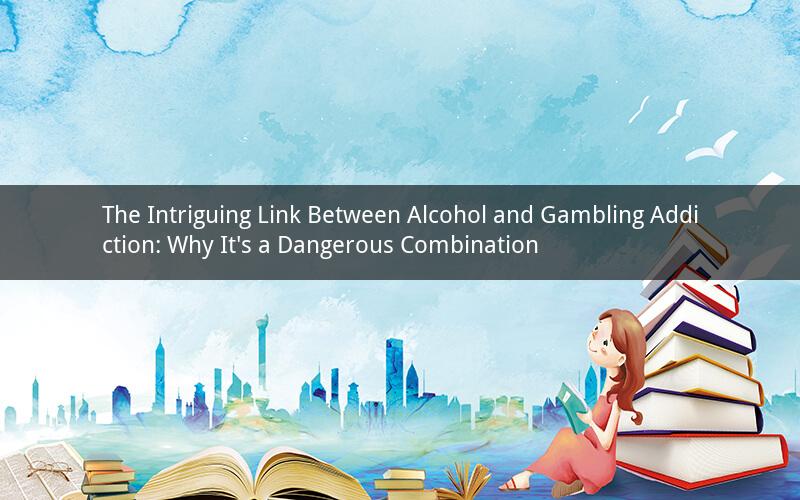
Alcohol and gambling have long been considered a dangerous mix, and for good reasons. The allure of alcohol can cloud judgment, while the thrill of gambling can be irresistible. But why does this combination lead to addiction? This article delves into the reasons behind why alcohol makes gambling addictive and explores the consequences of this dangerous combination.
1. The Psychological Connection
Alcohol is a depressant that affects the central nervous system, reducing inhibitions and altering mood. When consumed, it can lower one's self-control and decision-making abilities. This is where the psychological connection between alcohol and gambling addiction comes into play.
Gambling, on the other hand, is an inherently risky activity that can be thrilling and exciting. However, when combined with alcohol, the thrill of gambling can become even more intense. The altered mood and reduced inhibitions make individuals more susceptible to the allure of winning big and the fear of losing.
2. The Dopamine Connection
Alcohol and gambling both trigger the release of dopamine in the brain, a neurotransmitter associated with pleasure and reward. The release of dopamine creates a sense of euphoria and satisfaction, making both activities feel rewarding.
When individuals consume alcohol before gambling, the combination of the depressant's effects and the thrill of gambling can create a powerful dopamine surge. This surge can reinforce the desire to continue engaging in both activities, leading to addiction.
3. The Social Aspect
Alcohol is often consumed in social settings, and gambling is often associated with social events. The combination of alcohol and gambling can create a dangerous atmosphere that encourages addictive behavior.
When individuals gather to drink and gamble, the pressure to participate in both activities can be overwhelming. The social aspect of this combination can make it difficult for individuals to resist the temptation to continue engaging in both activities, leading to addiction.
4. The Financial Consequences
The combination of alcohol and gambling can lead to significant financial consequences. Alcohol can impair judgment, leading individuals to make poor decisions, such as betting larger amounts of money than they can afford to lose.
The thrill of gambling can also make individuals more likely to chase their losses, leading to even greater financial problems. The financial consequences of this dangerous combination can be devastating, causing stress, debt, and even bankruptcy.
5. The Health Risks
The combination of alcohol and gambling can also pose significant health risks. Chronic alcohol abuse can lead to a variety of health problems, including liver disease, heart disease, and addiction.
Gambling addiction can also lead to a range of health issues, including stress, anxiety, and depression. The physical and mental health consequences of this dangerous combination can be severe, affecting all aspects of an individual's life.
Frequently Asked Questions:
1. Can alcohol make gambling addiction worse?
Yes, alcohol can make gambling addiction worse. The combination of alcohol's depressant effects and the thrill of gambling can create a powerful dopamine surge, reinforcing the desire to continue engaging in both activities.
2. How does alcohol affect decision-making when gambling?
Alcohol can impair judgment and decision-making abilities. This can lead individuals to make poor decisions, such as betting larger amounts of money than they can afford to lose.
3. Can social settings with alcohol and gambling lead to addiction?
Yes, social settings with alcohol and gambling can lead to addiction. The pressure to participate in both activities can be overwhelming, making it difficult for individuals to resist the temptation to continue engaging in both activities.
4. What are the financial consequences of alcohol and gambling addiction?
The financial consequences of alcohol and gambling addiction can be severe, including debt, bankruptcy, and stress.
5. Can the health risks of alcohol and gambling addiction be reversed?
The health risks of alcohol and gambling addiction can be reversed with proper treatment and support. However, it is essential to seek help as soon as possible to minimize the long-term effects of these addictions.